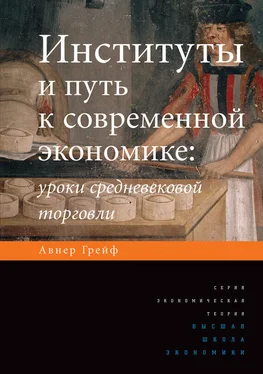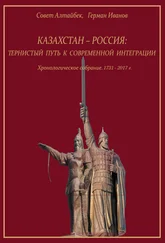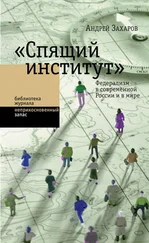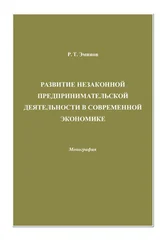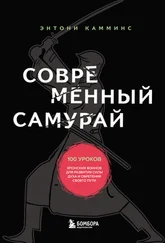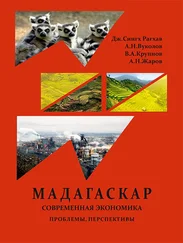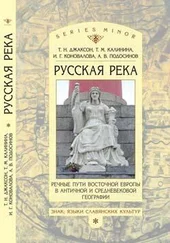Fligstein N. The Transformation of Corporate Control. Cambridge, MA: Harvard University Press, 1990.
Forsythe R., Horowitz J., Savin N.S. (eds). Fairness in Simple Bargaining Games // Games and Economic Behavior. 1994. Vol. 6. P. 347–369.
Frank A.G. Reorient: Global Economy in the Asian Age. Berkeley: University of California Press, 1998.
Frank R.H. If Homo Economics Could Choose His Own Utility Function, Would He Want One with a Conscience? // American Economic Review. 1987. Vol. 77. No. 4. P. 593–604.
French H.R. Hoyle R.W. English Individualism Refuted – and Reasserted: The Land Market of Earls Clone (Essex), 1550–1750 // Economic History Review. 2003. Vol. 4 (Nov.). P. 595–622.
Frey B.S. Not Just for the Money: An Economic Theory of Personal Motivation. Cheltenham: Edward Elgar Publishing, 1997.
Friedman J.W. Noncooperative Equilibrium for Supergames // Review of Economic Studies. 1971. Vol. 38. No. 8. P. 1–12.
Friedman J. (eds) The Rational Choice Controversy: Economic Models of Politics Reconsidered. New Haven: Yale University Press, 1996.
Friedman M. The Methodology of Positive Economics. Cambridge: Cambridge University Press, 1984.
Fudenberg D., Kreps D. A Theory of Learning and Nash Equilibrium. Mimeo, Stanford University, 1988.
Fudenberg D., Levine D.K. Self-Confirming Equilibrium // Econometrica. 1993. Vol. 61. No. 3. P. 523–545.
Fudenberg D., Levine D.K. The Theory of Learning in Games. Cambridge, MA: MIT Press, 1998.
Fudenberg D., Levine D.K. Steady State Learning and the Code of Hammurabi // Working Paper, University of California, Los Angeles, 2003.
Fudenberg D., Levine D.K., Maskin E. The Folk Theorem with Imperfect Public Information // Econometrica. 1994. Vol. 62. No. 5. P 997-1039.
Fudenberg D., Maskin E. The Folk Theorem for Repeated Games with Discounting and Incomplete Information // Econometrica. 1986. Vol. 54. No. 3. P 533–554.
Fudenberg D., Tirole J. Game Theory. Cambridge, MA: MIT Press, 1991.
Fukuyama F. Trust: The Social Virtues and the Creation of Prosperity. N.Y.: Free Press, 1995.
Furnivall J.S. Colonial Policy and Practice: A Comparative Study of Burma and Netherlands India. N.Y.: New York University Press, 1956.
FurubotnE.G., RichterR. Institutions and Economic Theory Ann Arbor: University of Michigan Press, 1997.
Gäachter S., Falk A. Reputation and Reciprocity: Consequences for the Labour Relation // Scandinavian Journal of Economics. 2002. Vol. 104. No. 1. P 1-26.
Galor O., Zeira J. Income-Distribution and Macroeconomics // Review of Economic Studies. 1993. Vol. 60. No. 1. P. 35–52.
Garfinkel H. Studies in Ethnomethodology. Englewood Cliffs, NJ: Prentice-Hall, 1967.
Geanakoplos J., Pearce D., Stacchetti E. Psychological Games and Sequential Rationality // Games and Economic Behavior. 1989. Vol. 1. No. 1. P 60–79.
GhatakM., Guinnane T.W. The Economics of Lending with Joint Liability: Theory and Practice // Journal of Development Economics. 1999. Vol. 60. No. 1. P 195–228.
Ghosh P., Ray D. Cooperation in Community Interaction without Information Flows // Review of Economic Studies. 1996. Vol. 63. No. 3. P 491–519.
Game Theory for Applied Economists. Princeton, NJ: Princeton University Press, 1992.
Game Theory and Garbage Cans: An Introduction to the Economics of Internal Organization / R. Stern and J. Halpern (eds). Debating Rationality: Nonrational Elements of Organizational Decision Making. Chap. 2. Ithaca, NY: ILR Press, 1998.
Gibbons R. Trust in Social Structures: Hobbes and Coase Meet Repeated Games / K. Cook (ed.). Trust in Society, chap. 11. N.Y.: Russell Sage Foundation, 2001.
Gibbons R., Rutten A. Hierarchical Dilemmas: Social Order with Self-Interested Rulers // Working Paper, Cornell University, 1997.
Giddens A. Sociology. L.: Polity Press, 1997.
Gil M. The Tustars, the Family and the Sect. Tel Aviv: Tel Aviv University Press, 1971.
Gil M. The Jews in Sicily under the Muslim Rule in the Light of the Geniza Documents // Unpublished Manuscript. Tel Aviv University, 1983a.
Gil M. Palestine during the First Muslim Period (634-1099) (in Hebrew and Arabic). Vols. 1–3. Tel Aviv: Ministry of Defense Press and Tel Aviv University Press. 1983b.
Gilboa I., Schmeidler D. Theory of Case-Based Decisions. Cambridge: Cambridge University Press, 2001.
Gintis H. Game Theory Evolving. Princeton, NJ: Princeton University Press, 2000.
Giovanni di Guiberto. 1200–1211. Cartolare (in Latin and Italian) / M.W Hall-Cole, R. G. Reinert (eds). Documenti, XVII–XVIII. Turin: Editrice Libraria Italiana, 1939–1940.
Giovanni Scriba. 1154–1164. Cartolare (in Latin and Italian) / Mario Chiaudano and Mattia Moresco (eds). Vols. 1, 2. Turin: S. Lattes & C. Editori, 1935.
Glaeser E.L., Porta R.L., Lopez-de-Silanes F. (eds). Do Institutions Cause Growth? Memo. Harvard University, 2004.
Glaeser EL., Shleifer A. Legal Origin // Quarterly Journal of Economics. 2002. Vol. 117. No. 4. P. 1193–1230.
Goitein S.D. The Beginning of the Karim Merchants and the Character of Their Organization // Journal of Economic and Social History of the Orient. 1957. Vol. 1. No. 175–184.
Goitein S.D. Commercial and Family Partnerships in the Countries of Medieval Islam. Islamic Studies. 1964. Vol. 3. P. 315–337.
Goitein S.D. A Mediterranean Society: Economic Foundations. Los Angeles: University of California Press, 1967.
Goitein S.D. A Mediterranean Society: The Community. Los Angeles: University of California Press, 1971.
Goitein S.D. Letters of Medieval Jewish Traders. Princeton, NJ: Princeton University Press, 1973.
Goitein S.D. A Mediterranean Society: The Family. Los Angeles: University of California Press, 1978.
Goodin R., Klingemann H.-D. (eds). A New Handbook of Political Science. N.Y.: Oxford University Press, 1996.
Goody J. The Development of the Family and Marriage in Europe. Cambridge: Cambridge University Press, 1983.
Gould S.J., Eldredge N. Punctuated Equilibria: The Tempo and Mode of Evolution Reconsidered // Paleobiology. 1977. Vol. 3. P. 115–151.
Grantham G. The Manse, the Manor and the Market: New Perspectives on the Medieval Agricultural Revolution: Memo. McGill University, 1992.
Grantham G. Economic Growth without Causes: A Reexamination of Medieval Economic Growth and Decay. Presented at the Annual Meeting of the American Economic History Association, Tucson, AZ, 1993.
Granovetter M.S. Economic Action, Social Structure, and Embeddedness // American Journal of Sociology. 1985. Vol. 91. No. 3. P. 481–510.
Granovetter M.S. A Theoretical Agenda for Economic Sociology / M. Guillen, R. Collins, P. England (eds). The New Economic Sociology: Developments in an Emerging Field, 35–59. N.Y.: Russell Sage Foundation, 2002.
Gras N.S.B. Business and Capitalism: An Introduction to Business History. N.Y.: F. S. Crofts, 1939.
Green D.P., Shapiro I. Pathologies of Rational Choice Theory. New Haven: Yale University Press, 1994.
Green E., Porter R. Noncooperative Collusion under Imperfect Price Information // Econometrica. 1984. Vol. 52 (Jan.). P. 87–100.
Greif A. Sicilian Jews during the Muslim Period (827-1061) (in Hebrew and Arabic). M.A. Thesis, Tel Aviv University, 1985.
Greif A. Reputation and Coalitions in Medieval Trade: Evidence on the Maghribi Traders // Journal of Economic History. 1989. Vol. 49. No. 4. P. 857–882.
Читать дальше
Конец ознакомительного отрывка
Купить книгу
